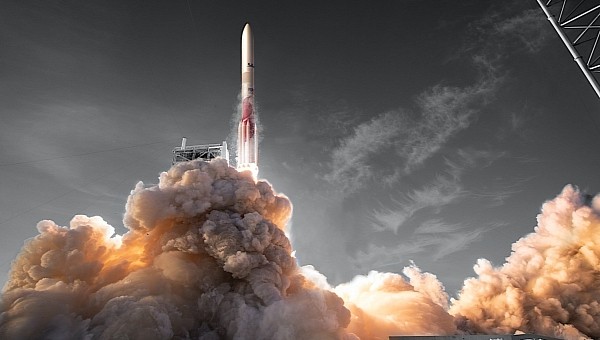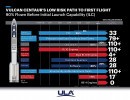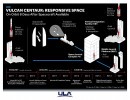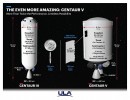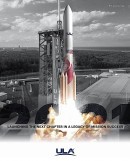Until earlier this year, when Russia decided to invade Ukraine, its cooperation with the U.S. in the realm of space exploration was rock solid regardless of what went on at a political level. But not anymore, and one way the invasion affected this working relationship has to do with rocket engines.
Russia was a supplier of rocket engines for some American companies, including United Launch Alliance (ULA) and Northrop Grumman. It decided back in March to stop giving us Americans tech, so companies here had to find rapid ways around the issue.
ULA, which is getting ready to launch in the first quarter of next year a new rocket called Vulcan, chose Blue Origin as engine supplier, and the BE-4 powerplants Jeff Bezos’ company has been developing for a while now. And this week, Blue Origin announced it delivered the first batch of engines to ULA for final acceptance testing.
That means two of them, which will be installed on the first Vulcan to go up, carrying the Astrobotic Peregrine lunar lander, among other things. Each can develop 550,000 pounds of thrust with the help of liquid natural gas (LNG) and oxygen, making it the most powerful of its kind currently being produced in the U.S.
The BE-4s will power the boosters of the rocket, and they’ll be backed by two Aerojet Rocketdyne RL10C engines pushing on the second stage.
As for the Vulcan, ULA will offer it in four variants, namely with zero, two, four and six solid rocket boosters. The entry-level will be capable of carrying up to 20,300 lbs (9,200 kg) to low-Earth orbit, while the fully-loaded 6-booster machine up to 59,300 lbs (26,900 kg). Several payload fairings are also offered to suit a variety of needs for future customers.
When fully operational, the Vulcan will replace the Atlas-5 and Delta-4 families of rockets.
ULA, which is getting ready to launch in the first quarter of next year a new rocket called Vulcan, chose Blue Origin as engine supplier, and the BE-4 powerplants Jeff Bezos’ company has been developing for a while now. And this week, Blue Origin announced it delivered the first batch of engines to ULA for final acceptance testing.
That means two of them, which will be installed on the first Vulcan to go up, carrying the Astrobotic Peregrine lunar lander, among other things. Each can develop 550,000 pounds of thrust with the help of liquid natural gas (LNG) and oxygen, making it the most powerful of its kind currently being produced in the U.S.
The BE-4s will power the boosters of the rocket, and they’ll be backed by two Aerojet Rocketdyne RL10C engines pushing on the second stage.
As for the Vulcan, ULA will offer it in four variants, namely with zero, two, four and six solid rocket boosters. The entry-level will be capable of carrying up to 20,300 lbs (9,200 kg) to low-Earth orbit, while the fully-loaded 6-booster machine up to 59,300 lbs (26,900 kg). Several payload fairings are also offered to suit a variety of needs for future customers.
When fully operational, the Vulcan will replace the Atlas-5 and Delta-4 families of rockets.
